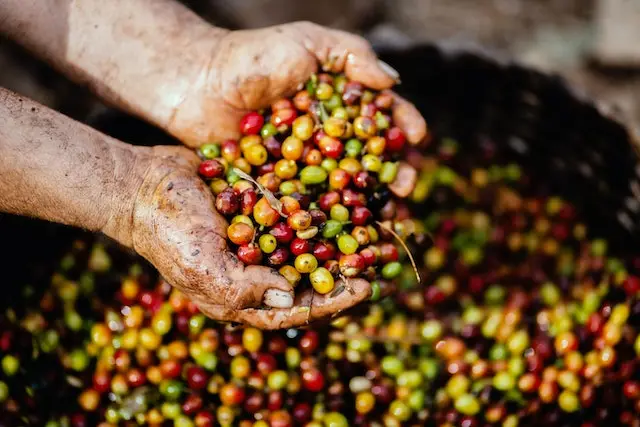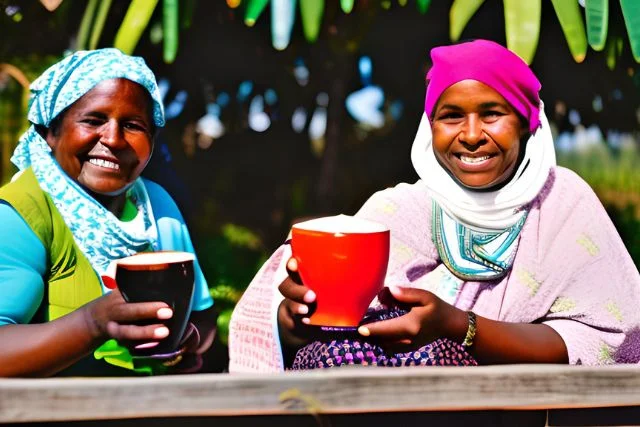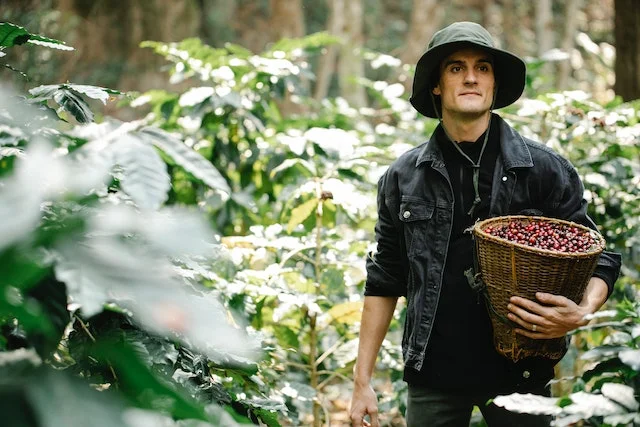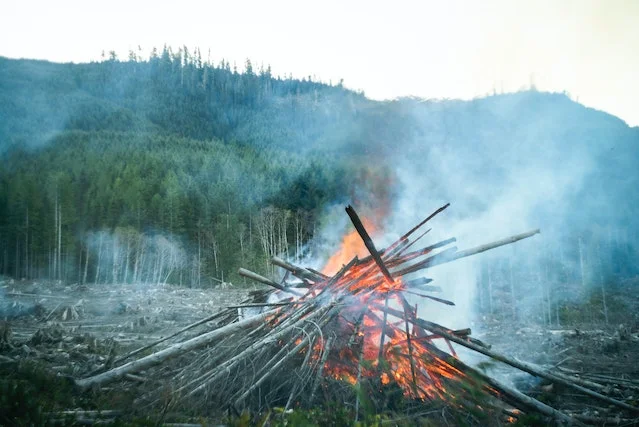Sustainable Coffee Challenges: Navigating the Complex Landscape
Sustainable coffee challenges face many complex obstacles as the industry strives to become more environmentally and socially responsible. As demand for coffee continues to grow globally, there is an urgent need to address these sustainable coffee challenges and ensure coffee is produced in a way that protects the planet and empowers farmers. This article provides an overview of the key sustainable coffee challenges and the innovations aimed at overcoming them to create a more ethical and eco-friendly coffee sector.
The concept of sustainability in coffee relates to growing and producing coffee through methods that conserve nature and support farmers, workers, and local communities. With coffee being one of the most valuable agricultural exports for developing nations, tackling these sustainable coffee challenges is critical for the livelihoods of millions of smallholder farmers. However, major hurdles stand in the way of true sustainability becoming the norm.
Key Takeaways
- Environmental Challenges: Sustainable coffee faces environmental challenges such as deforestation and climate change, impacting biodiversity and coffee crop viability.
- Social Issues: The article highlights social issues within the coffee industry, including fair wages, labor rights, and gender inequality, with a focus on the need for fair trade practices.
- Economic Obstacles: Economic challenges, like price volatility and limited market access for small-scale producers, pose significant barriers to sustainability.
- Innovative Solutions: The article discusses innovative solutions, such as agroforestry, sustainable farming practices, and supply chain traceability technologies, to address these challenges and promote sustainability.

The Global Coffee Industry
Coffee has a long and rich history spanning centuries. The origins of coffee cultivation lie in Yemen and Ethiopia, with the first exports to Europe occurring in the 17th century. Commercial coffee production expanded in Latin America and Asia during the 18th and 19th centuries. Today, Brazil, Vietnam, Colombia and Indonesia are the leading global producers of coffee.
The coffee industry is a complex global network involving approximately 125 million people worldwide. Coffee is cultivated on over 27 million hectares of land across more than 60 countries. After crude oil, coffee is the most popular commodity traded globally. The total retail value of the coffee industry is estimated at over $200 billion.
Coffee plays a major role in the economies of many developing nations. For countries like Ethiopia, Honduras, and Guatemala, coffee exports comprise a significant portion of their total agricultural exports and GDP. Coffee is crucial for the incomes and livelihoods of millions of smallholder farmers in Africa, Asia, and Latin America.
Here are the top coffee producing countries globally:
| Rank | Country | Production (tons) |
| 1 | Brazil | 2,595,000 |
| 2 | Vietnam | 1,650,000 |
| 3 | Colombia | 810,000 |
| 4 | Indonesia | 660,000 |
Environmental Challenges
A number of pressing environmental issues pose sustainable coffee challenges for the industry. Deforestation associated with coffee farming impacts biodiversity and reduces vital ecosystem services. Climate change threatens coffee crops and requires farmers to adapt.

Deforestation and Biodiversity Loss
Widespread clearing of forests for coffee farms has caused substantial habitat and biodiversity loss throughout major coffee-producing regions. Traditional coffee growing took place under the shade of native forest trees, which maintained diverse plant and animal species. However, the advent of intensive sun cultivation practices in the 1970s led to deforestation to establish coffee monocultures.
This has negatively impacted biodiversity, including bird and insect populations that help control pests and pollinate coffee plants. For example, the conversion of forests to coffee plantations has been a major driver of deforestation in Ethiopia’s critical Afromontane biodiversity hotspots. Efforts to promote shade-grown coffee under diverse native tree cover can help restore biodiversity. Integrating coffee with food crops and trees under agroforestry systems also enhances sustainability.
Here are some ways shade-grown coffee benefits biodiversity:
- Preserves habitat for birds and wildlife
- Maintains pollinator populations
- Promotes genetic diversity of coffee varieties
- Provides migration corridors for species
Climate Change Adaptation
Rising temperatures, increased droughts and extreme weather events associated with climate change all threaten coffee farming. Suitable climatic conditions for growing coffee could decline by up to 50% in some countries by 2050. This will require producers to adapt, such as through:
- Planting heat and drought tolerant coffee varieties
- Implementing irrigation systems
- Adopting agroforestry practices
Supporting smallholder farmers with resources and training for adaptation is key. Sustainable coffee challenges like adapting to climate change require holistic solutions. Climate-smart agricultural practices like agroforestry can strengthen resilience. Intercropping coffee with bananas, pepper, vanilla and shade trees diversifies income for farmers and creates climate resilient eco-friendly coffee farms.

Social Challenges
Achieving socially sustainable coffee production free from exploitation remains an urgent concern. Issues around child labor, gender inequality, fair wages and working conditions must be tackled.
Fair Trade and Labor Rights
Ensuring coffee farmers and workers receive fair compensation and are not exploited is a central issue. Smallholder farmers often struggle with poverty and debt due to fluctuating coffee prices and lack of market access. Harmful labor practices like child labor have occurred, especially on large commercial farms.
The fair trade movement seeks to promote:
- Fair compensation
- Improved working conditions
- Community development
for coffee producers. Fairtrade certification is associated with higher incomes, reduced vulnerability and greater environmental sustainability. More progress is needed to make fair trade principles the norm. Sustainable coffee challenges like fair labor practices require continued effort.
Empowering Women Coffee Producers
Coffee farming relies heavily on female labor, yet women consistently earn less than men for the same work. They often lack access to inputs, credit and training to be economically empowered. Coffee farming relies heavily on female labor, yet women consistently earn less than men for the same work. They often lack access to inputs, credit, and training to be economically empowered. Just 20% – 30% of land used for coffee farming is owned by women..
Initiatives to close the gender gap and promote women’s leadership in coffee are growing. For example, the Café Femenino Foundation supports women’s coffee cooperatives in Latin America. Empowering women through access to resources, education and leadership roles is integral for socially sustainable coffee. Tackling sustainable coffee challenges around gender inequality remains critical.

Economic Challenges
Volatile coffee prices and lack of market access for small-scale producers present major economic obstacles to sustainability.
Price Volatility
Coffee prices have historically fluctuated dramatically due to:
- Market speculation
- Trade policies
- Weather events
- Other unpredictable factors
Severe price drops could recur, as seen in the late 1980s and 1990s which caused economic turmoil for coffee farmers. Price volatility makes coffee farming financially risky and can accelerate deforestation when farmers expand/intensify coffee areas to compensate for lower prices per unit. More dialogue between producers and consumers on shared risks is needed to promote price stability. Sustainable coffee challenges like commodity price volatility require collaborative solutions.
Access to Markets
Smallholder farmers often lack access to:
- Markets
- Infrastructure
- Value-adding facilities
This keeps them trapped in cycles of poverty. Strengthening farmer cooperatives and associations can help connect smallholders to markets. Additionally, certifications like Fairtrade and organic can provide price premiums and support for small producers if supply chain transparency and integrity can be ensured. Enhancing market access for smallholders is one of the pressing sustainable coffee challenges.

Technological and Farming Innovations
Incorporating sustainable technologies and farming methods is crucial for environmentally responsible coffee production.
Sustainable Farming Practices
Practices like organic farming, agroforestry and growing coffee under diverse shade can improve sustainability. Organic techniques eliminate synthetic pesticides and fertilizers by using natural inputs. Agroforestry intercrops coffee with bananas, pepper, and other crops, providing income diversification and nutrition for farmers. Shade-grown coffee protects biodiversity by preserving native tree cover.
Here are some key sustainable coffee farming practices:
- Organic farming
- Agroforestry systems
- Intercropping with other crops
- Shade-grown coffee cultivation
- Conservation tillage
- Erosion control measures
- Natural pest management
Sustainable coffee challenges like environmental degradation can be addressed through regenerative approaches like these.
Supply Chain Traceability
Emerging technologies like blockchain, GPS mapping and QR codes can enhance transparency and traceability in coffee supply chains. This allows consumers to verify where their coffee was produced and whether sustainability standards were met. Companies like HarvestMark and Farmer Connect use QR codes to trace coffee origins. Overall, technological innovations must be leveraged to monitor sustainable practices across complex coffee supply networks. Supply chain traceability helps tackle sustainable coffee challenges around ethical sourcing.

Increasing Consumer Awareness
Educating consumers on sustainability issues is important for driving ethical consumerism and consumption of eco-friendly coffee.
Coffee Certifications
Credible third-party certifications help consumers identify sustainably produced coffee. Some leading labels include:
- Fairtrade
- Rainforest Alliance
- Bird Friendly
- Organic
These enable consumers to choose coffee aligned with their values based on standards verified along the supply chain. However, the certification landscape can be complex for consumers to navigate. Clear information on certifications can help consumers support solutions for sustainable coffee challenges.
Brands Promoting Sustainability
Many coffee companies now actively promote their sustainability initiatives—like Starbucks’ C.A.F.E. Practices program to promote farmer welfare and ethical sourcing. Small specialty roasters focused on direct trade and farmer-transparent supply chains are also growing. Conscientious consumers can support brands that align with sustainability values. But vigilance is needed to ensure substantive action versus mere greenwashing. Informed consumer purchasing is an important lever in addressing sustainable coffee challenges.

Government and Industry Actions
Governments and industry players have a key role to play in transforming coffee production.
- Government policies and incentives can promote sustainable practices, research, and support for smallholder farmers. Governments also must implement and enforce laws prohibiting forced labor.
- Leading coffee companies are establishing sustainability programs. For example, Nespresso’s Reviving Origins program supports smallholder coffee farming in regions like Zimbabwe.
- Multi-stakeholder initiatives like the Global Coffee Platform convene companies, producers, civil society, and others to enact sustainability strategies.
But more ambitious collaborative efforts are essential—like industry commitments to end deforestation and human rights violations in coffee supply chains. Leadership and partnerships are needed to tackle sustainable coffee challenges.
Success Stories
Some sustainability success stories showcase the potential for positive change through ingenuity and collaboration.
- Agroforestry coffee systems have restored degraded land and biodiversity in Costa Rica’s Las Lajas Biological Corridor, providing a model for sustainable coffee production in protected areas.
- Cooperatives like Anfilo Specialty Coffee in Ethiopia exemplify how farmer organizations can access specialty coffee markets and obtain above-average prices through direct trade relationships.
- Women coffee leaders in Colombia used research and collective action to earn recognition and close the gender wage gap through the Gender Justice Study.
These examples demonstrate that sustainable coffee is achievable when stakeholders work together to implement solutions to sustainable coffee challenges.

The Future of Sustainable Coffee
The sustainable coffee movement holds promise for transforming the sector, but many sustainable coffee challenges remain. Continued growth in demand, climate change impacts and human rights concerns will test the industry. However, there are also grounds for optimism.
- Agroforestry, regenerative farming and other innovative practices can enhance sustainability. Digital technologies can strengthen transparency and traceability.
- Consumers increasingly demand ethical and eco-friendly coffee options. Sustainability-focused brands and alternative trade models are growing.
- Multi-stakeholder coalitions are steering the sector towards sustainability targets. Commitments like the Coffee & Climate initiative bring key players together.
Overall, a future where coffee production regenerates nature, empowers farmers and connects consumers more meaningfully to their coffee’s origins could be possible through renewed collective effort to address sustainable coffee challenges.
Conclusion
Achieving a truly sustainable coffee sector requires addressing immense but not insurmountable sustainable coffee challenges. As coffee continues to be integral to the livelihoods of millions of smallholders and daily rituals of consumers worldwide, transforming the system that produces, trades and consumes this treasured beverage is imperative. Through creativity, technology, consumer awareness and collaboration, a brighter future for all involved in coffee—from the farmer to the final cup—can come into focus. The coming years will demonstrate how sustainability values can translate into impactful realities in coffee farming communities and landscapes. The time for action to tackle these sustainable coffee challenges is now.








